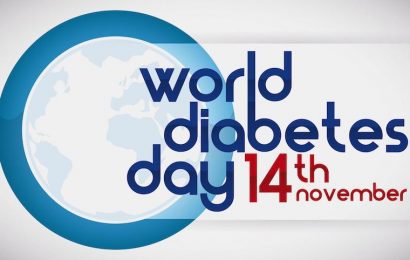In yesterday’s blog entry here at DiabetesSelfManagement.com, Martha Zimmer writes about how many older adults struggle with hypoglycemia (low blood glucose) while trying to achieve recommended blood glucose levels. Hypoglycemia, she notes, can be more dangerous in older adults because they already have a higher risk of cognitive problems (like forgetfulness) and motor problems (like falling), both of which can be made worse by hypoglycemia. Older people, she notes, should not always try to follow blood-glucose guidelines meant for the general population with diabetes.
A recent study published in the journal Diabetes Care shows just how many older adults with diabetes aren’t meeting recommended goals in areas like HbA1c (a measure of long-term blood glucose control), blood pressure, and LDL (low-density lipoprotein, or “bad”) cholesterol levels. As noted in an article on the study at MedPage Today, most of the more than 1,500 adults with diabetes in the study — whose ages ranged from 67 to 90 — didn’t meet recommendations in all three areas. While 72% met the recommendation for HbA1c (under 7%), 63% met it for LDL cholesterol (under 100 mg/dl), and 73% met it for blood pressure (under 140/90 mmHg), only 35% met the recommended goals for all three.
When slightly more relaxed goals were used as standards, however, a far greater number of study participants met them in all three areas. Using goals of under 8% for HbA1c, under 130 mg/dl for LDL cholesterol and under 150/90 mmHg for blood pressure, 68% of participants with diabetes were found to have met all of them. The researchers concluded, according to the MedPage Today article, that “a one-size-fits-all approach may not be ideal” for older adults. Some may very well benefit from trying to achieve the numbers recommended for the general population with diabetes, but many may find it impossible to meet these goals without serious health consequences like hypoglycemia. Even if they don’t have negative health consequences, efforts to lower blood pressure and LDL cholesterol may be frustrating and unnecessary because many older people are unlikely to live long enough to reap their long-term benefits.
Gender and racial disparities were also found in the results of the study, with black participants — especially black women — less likely than white participants to meet recommended goals, even after adjusting for differences in education level, body weight, and whether or not someone took insulin or another blood-glucose-lowering drug. White participants were 1.03 times as likely to meet the target HbA1c level, 1.21 times as likely to meet the target LDL cholesterol level, 1.1 times as likely to meet the target blood pressure level, and 1.28 times as likely to meet all three. It’s unknown to what degree these results could be attributed to differences in access to health care, or differences in treatment approaches between the two groups — especially since most black participants were recruited from just two different health-care locations.
What do these results mean to you — if you’re an older adult, would you rather not bother trying to follow recommendations for HbA1c, cholesterol, and blood pressure that may not benefit you? Or is it insulting to older adults to recommend less strict goals, under the reasoning that they probably won’t live long enough to benefit from them? Have you found it more difficult to control any of these measurements as you’ve gotten older? Have your doctor’s recommendations for treating these areas changed over time, by getting more or less strict? Leave a comment below!





